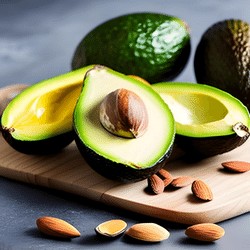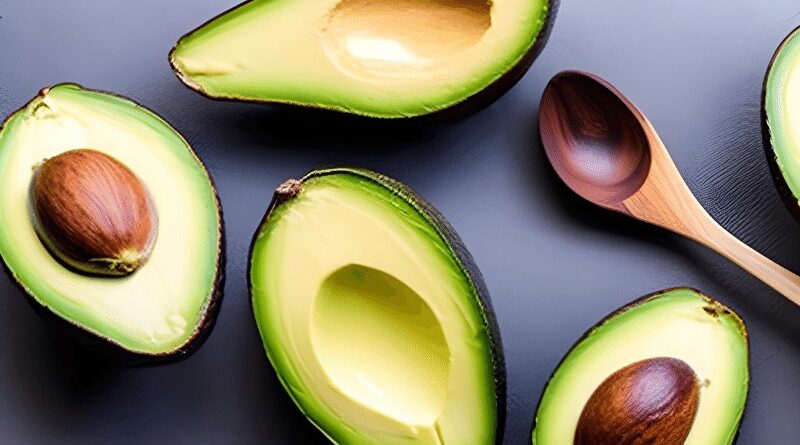Healthy Fats Unveiled: Discovering the Goodness of Avocado and Almonds
Contents
Healthy Fats Unveiled; Avocado and Almonds
When it comes to a balanced and nourishing diet, fats often get a bad rap. However, not all fats are created equal. In fact, there are certain fats that are not only beneficial but also essential for our overall well-being. In this article, we will delve into the world of healthy fats, with a focus on the nutritional powerhouses: avocados and almonds. We’ll uncover the science behind these fats, explore their health benefits, and provide you with practical tips on how to incorporate them into your diet. Get ready to embrace the goodness of healthy fats and take a step towards a more vibrant and wholesome lifestyle.
Understanding Healthy Fats and Their Importance
Healthy fats, also known as unsaturated fats, play a crucial role in maintaining our health. They are a significant source of energy, aid in the absorption of fat-soluble vitamins (like A, D, E, and K), and support various bodily functions. These fats are categorized into monounsaturated fats and polyunsaturated fats, each with its unique benefits.
Avocado: The Creamy Superfood
Avocado, often referred to as a superfood, is a true gift from nature. Rich in heart-healthy monounsaturated fats, avocados offer a creamy texture and a delightful taste. They are also packed with fiber, vitamins, and minerals that contribute to overall wellness. Studies have shown that consuming avocados can help lower bad cholesterol levels, reduce the risk of heart disease, and even aid in weight management.
Almonds: Nature’s Nutrient-Rich Gems
Almonds, on the other hand, are nutrient-rich nuts that are a powerhouse of healthy fats, protein, fiber, vitamins, and minerals. They are a source of monounsaturated fats that promote heart health and satiety. Incorporating almonds into your diet has been associated with improved cholesterol levels, better blood sugar control, and even enhanced brain health.
Incorporating Healthy Fats into Your Diet
Incorporating avocado and almonds into your diet is not only delicious but also easy. Add sliced avocado to your morning toast, blend it into a creamy smoothie, or use it as a substitute for butter in baking. Almonds can be enjoyed as a satisfying snack, sprinkled over salads, or turned into almond butter for a nutrient-rich spread.
Sample Dishes Featuring Avocado and Almonds

- Avocado Toast Delight: Top whole-grain toast with mashed avocado, a sprinkle of sea salt, and a drizzle of olive oil for a nutrient-packed breakfast.
- Almond-Crusted Chicken: Coat chicken breasts with crushed almonds and bake for a crunchy and protein-rich dinner.
- Avocado and Almond Salad: Create a vibrant salad by combining mixed greens, sliced avocado, toasted almonds, and a zesty lemon vinaigrette.
Embrace the Goodness of Healthy Fats
Contrary to popular belief, fats can be an essential part of a balanced diet. Avocado and almonds showcase the positive impact of healthy fats on our health. By incorporating these nutrient-dense foods into your meals, you’re not only enjoying their delectable flavors but also reaping numerous health benefits. So, why not indulge in the goodness of avocado and almonds and take a step towards a healthier and more vibrant you?
FAQs About Healthy Fats; Avocado and Almonds
Q1: How often can I enjoy avocado without worrying about excess calories?
A1: Avocados are nutrient-dense and provide healthy fats, but they are calorie-dense as well. Moderation is key. While avocados offer numerous health benefits, consuming them in appropriate portions, such as half an avocado per serving, can help you enjoy their goodness without excessive calorie intake.
Q2: Can almonds be part of a weight loss plan due to their fat content?
A2: Yes, almonds can be a valuable addition to a weight loss plan. Their combination of healthy fats, protein, and fiber can promote feelings of fullness and reduce overeating. However, portion control is important, as almonds are calorie-dense. A small handful (about 1 ounce) makes for a satisfying and nutritious snack.
Q3: Are there any precautions for those with nut allergies when consuming almonds?
A3: Absolutely. Almonds are tree nuts, and individuals with nut allergies should exercise caution. Nut allergies can range from mild to severe, so if you suspect an allergy, it’s best to avoid almonds and consult a healthcare professional. Always read labels and be aware of potential cross-contamination risks.
Q4: What makes monounsaturated fats in avocados and almonds heart-healthy?
A4: Monounsaturated fats are considered heart-healthy because they can help lower bad cholesterol levels (LDL cholesterol) while maintaining or even increasing good cholesterol levels (HDL cholesterol). These fats also support overall heart health by reducing inflammation and contributing to improved blood vessel function.
Q5: How can I differentiate between good fats and bad fats in my diet?
A5: Good fats, like monounsaturated and polyunsaturated fats found in avocados and almonds, offer health benefits and should be part of a balanced diet. Bad fats, such as trans fats and excessive saturated fats, can contribute to health issues like heart disease. Reading nutrition labels and focusing on whole, unprocessed foods can help you make informed choices about fats in your diet.
